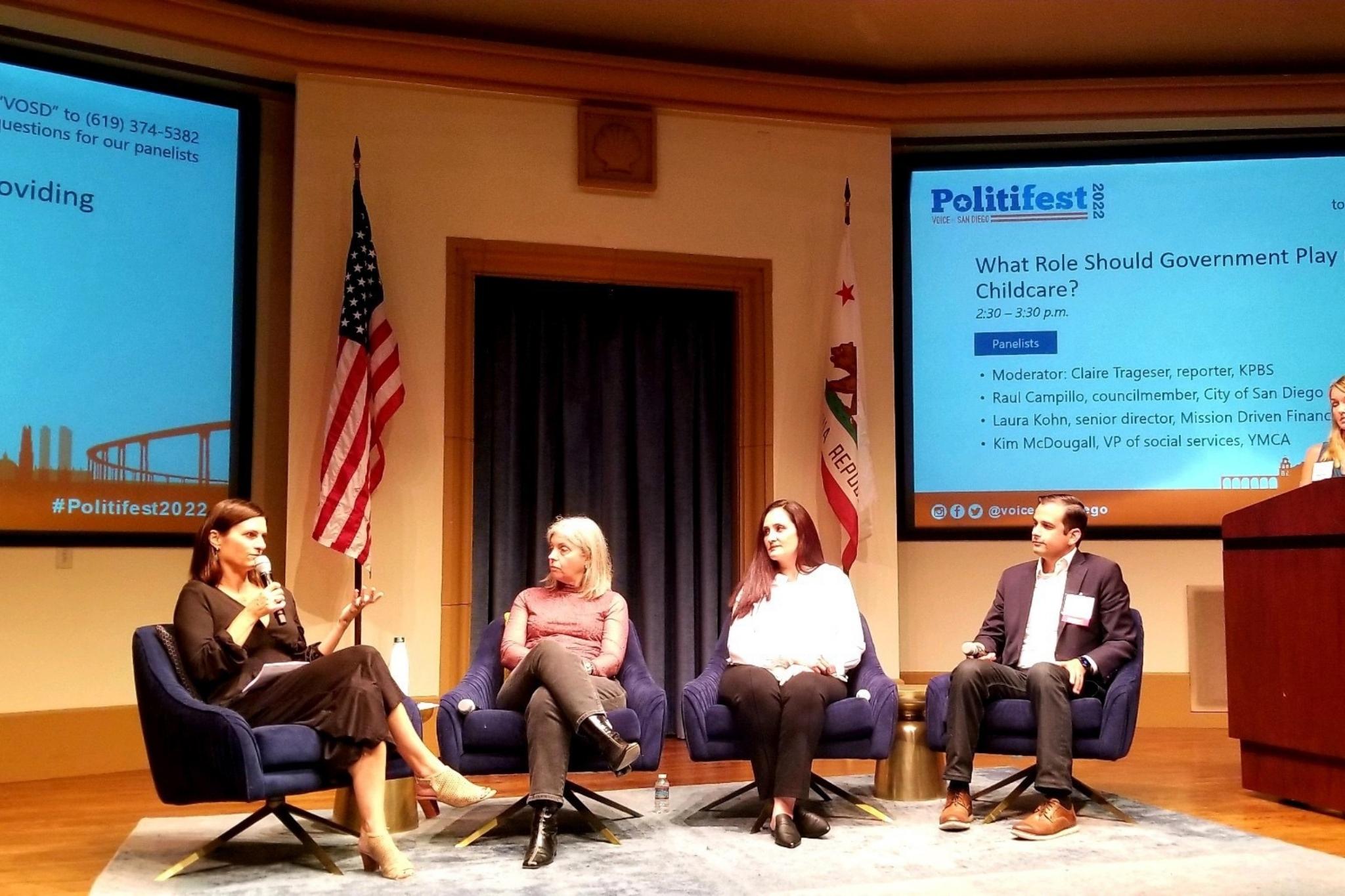Affordable, quality child care has long been challenging to find and has an adverse effect on women in the labor market in San Diego. As we emerge from the pandemic, it could be even worse than before. Some providers have closed, and the ones that stayed open face COVID protocols, staffing shortages, inflation, and government changes such as universal transitional kindergarten.
The question is, how can the government help? The City of San Diego will be the first in the nation to provide a child care program for police officers, and there are other initiatives in the works to increase access.
During this year’s Politifest, Laura Kohn, co-senior director of education & care at Mission Driven Finance, was part of the panel, What Role Should Government Play in Providing Childcare? She sat down with moderator and KPBS reporter Claire Trageser, and other local leaders, including Raul Campillo, City of San Diego District 7 councilmember, and Kim McDougall, VP of social services at YMCA. They discussed the pros and cons of government involvement in child care and solutions to fill the gaps.
“Universal transitional kindergarten is breaking the child care sector,” says Laura. “It was already fragile…I think we’re gonna lose a lot of providers, [who are] scared for the viability of their business. What I said to a legislator earlier this week was the legislature needs to go back in session and acknowledge that you broke the child care system…and fix it now, because otherwise working parents are screwed.”
Kim McDougall, vice president of social services for the YMCA of San Diego County, elaborates, “transitional kindergarten often isn’t a full-day program, meaning it’s not a true child care solution for working parents. Transitional kindergarten, which must be held on a school campus, will likely offer a ‘junior kindergarten’ curriculum, rather than the ‘nurturing, play-based version’ of child care that many parents want.”


